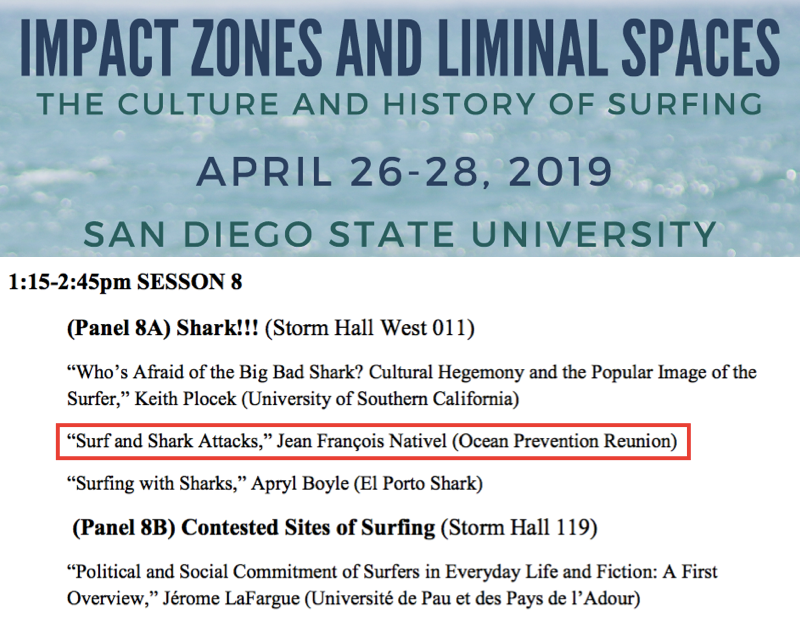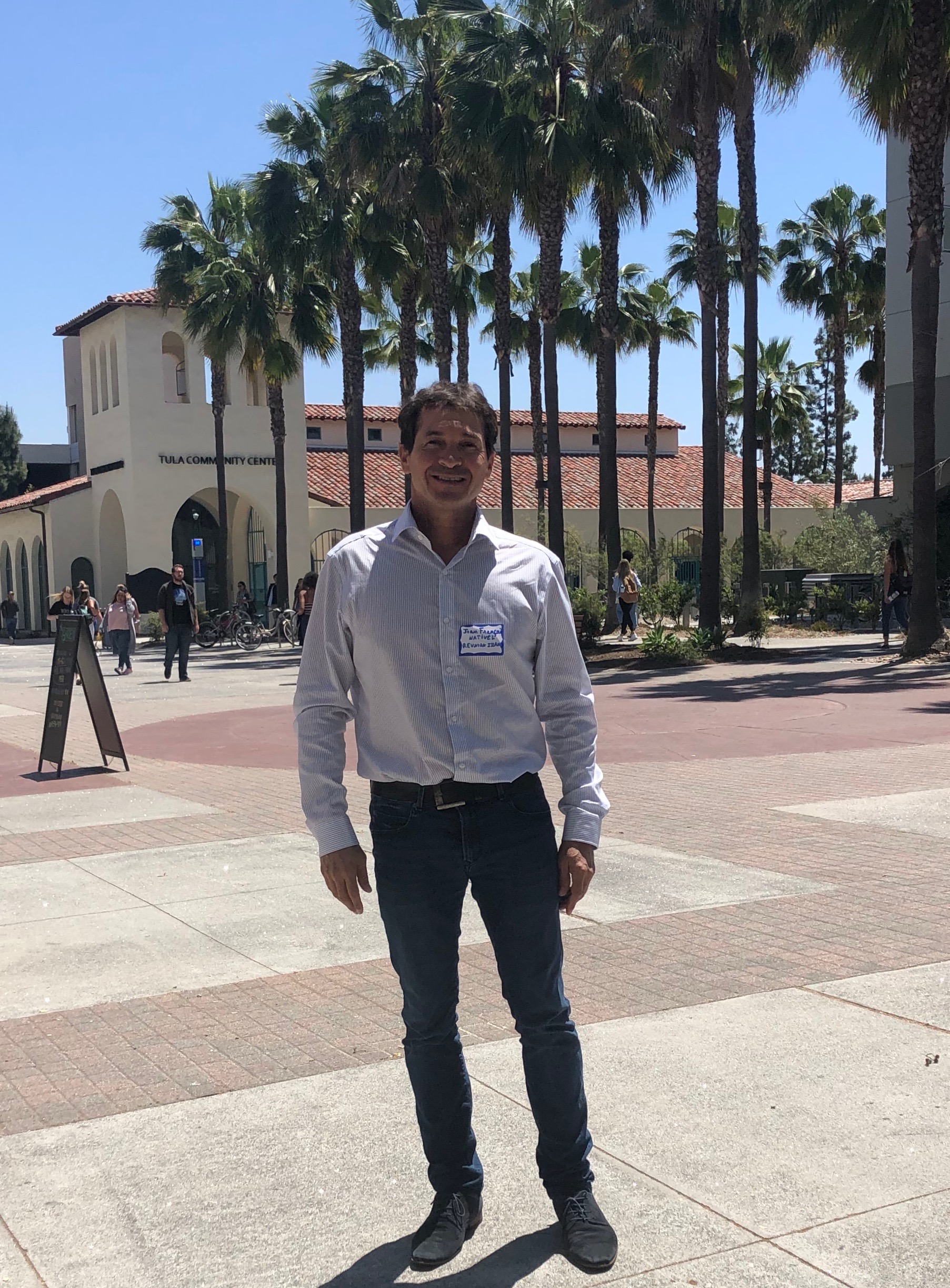"Impact Zones and Liminal Spaces: "The Culture and History of Surfing"
San Diego State University April 28, 2019 https://surfconf.sdsu.edu/program.html

“Scholars from all backgrounds and disciplines – humanities, social and natural sciences, cultural studies, ethnic studies, sports studies, etc. - are invited to join us in a comprehensive examination of the phenomenon we call surfing. We also welcome graduate and undergraduate students, writers, journalists, community activists, professional and casual surfers to join us in a celebration of, and critical reflection upon, the culture and history of surfing.”
Abstract of Jean Francois Nativel lecture:
Surfers have always faced the risk of shark attack. But, the danger has recently become the subject of intense media attention, in the context of a society that admires both surfers and sharks as veritable icons of nature. This situation has created a schism within the surfing community, which has a tradition of protecting the environment and marine animals.
Managed since 1937 in Australia and 1952 in South Africa, shark attack mitigation could be thanks to the use of fishing gear. But, the environmental conscience is questioning this approach, because of the high rate of bycatch, the importance of sharks to marine ecosystems, and a New Age philosophy that seems to hold humanity in utter contempt. As a result, the shark debate has become increasingly hysterical, especially in shark attack hotspots, like in Western Australia and Reunion Island.
Ever since Mick Fanning’s encounter, the business of professional surfing has become more and more concerned about the threat posed by sharks, as evidenced by the decision to stop the Margaret River contest mid-event, due to shark activity in the area.
In general, wildlife protection policies have worked well, particularly for iconic predators, by raising the issue of cohabitation and management. But, unfortunately, the radical postures of ocean protection organisations care little for the tragic reality faced by surfing communities exposed to excessive risk.
The challenge of risk reduction is confounded by intense campaigning by environmental lawyers, who attribute the terrifying image of a maneater to the movie Jaws. Yet sharks are not caught because they are dangerous, but rather because they are a source of food.
This strategy has consequences for the reputation of surfers, who are routinely denounced as uncivilised barbarians wanting to slaughter an entire species for the sake of mere recreation. This characterisation compounds the already negative connotations that have plagued the surfing community since its early association with the hippie counter-culture.
We are therefore faced with the challenge of solving a profound problem, which will only get worse as more and more hard-core environmentlists declare shark attacks to be a necessary sacrifice to atone for the evils of humanity. Can we accept this contention without reacting? Must surfers become unwilling martyrs for this popular antihuman ideology?
Jean Francois Nativel presentation:

After a series of attacks in the heart of popular beach areas, a renowned local water sports figure Jean Francois Nativel, in July 2011 founded the first Reunion’s shark attack prevention society (Ocean Prevention Réunion). In the early stages of the "shark crisis" he initiated a relentless struggle to legitimize the implementation of a public policy, in response to the elevating shark attack risk in Reunion Island.
Jean is a PE teacher, PE and a surf instructor and a waterman for 35 years. He wrote a non-fiction book “Sharks attacks, a modern tragedy, Reunion Island’s story” (November 2015), available in English on Kindle.
This book gives an account of the circumstances that led to a ban on entering the ocean in Reunion Island, with an anthropological, sociological and also ethnological perspective, revealing that unlike other islands, the Reunion natives appear disinterested in aquatic activities (and even opposed for some who consider that are “white Western practices”).
Here’s some publications: one where he talk about innovations, others more recent in The Inertia, in Surf Simply or on a general media.
He was in Australia in October 2018 where he gave a lecture about the similarities and comparative parallels emerging between the situation in Reunion and other world ‘shark hot-spots’ like Australia, South Africa, Hawaii, Recife (Brazil) and Florida.